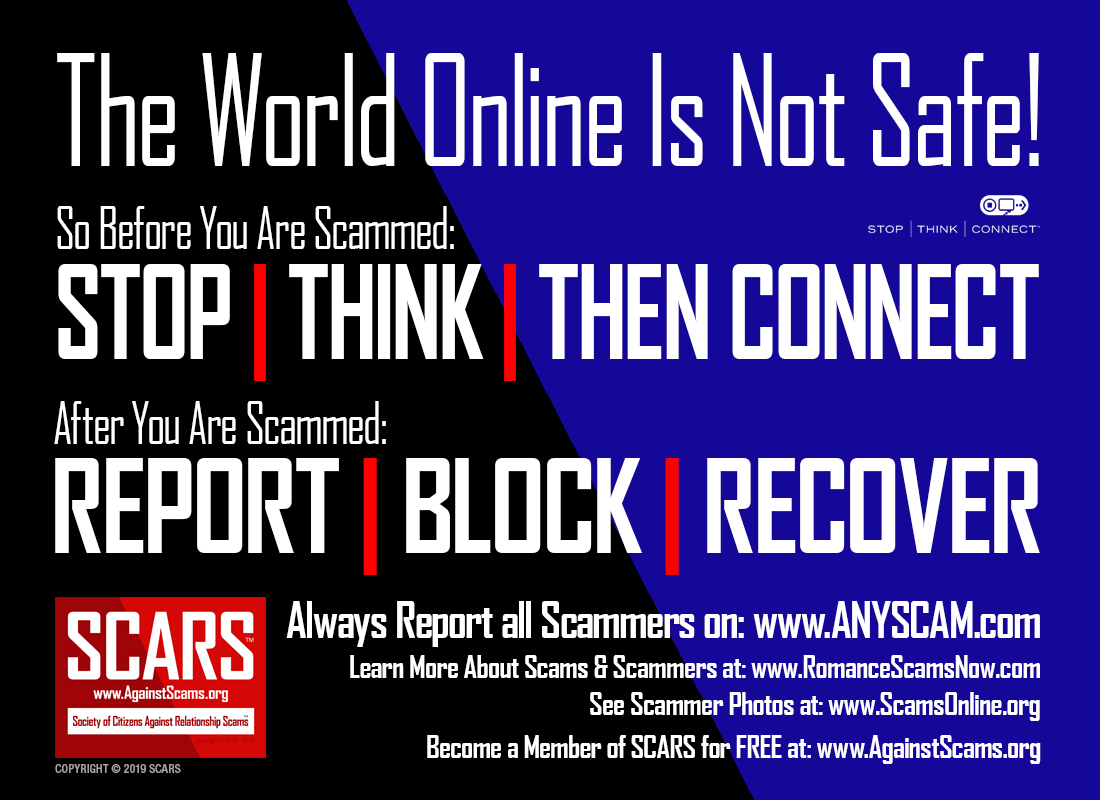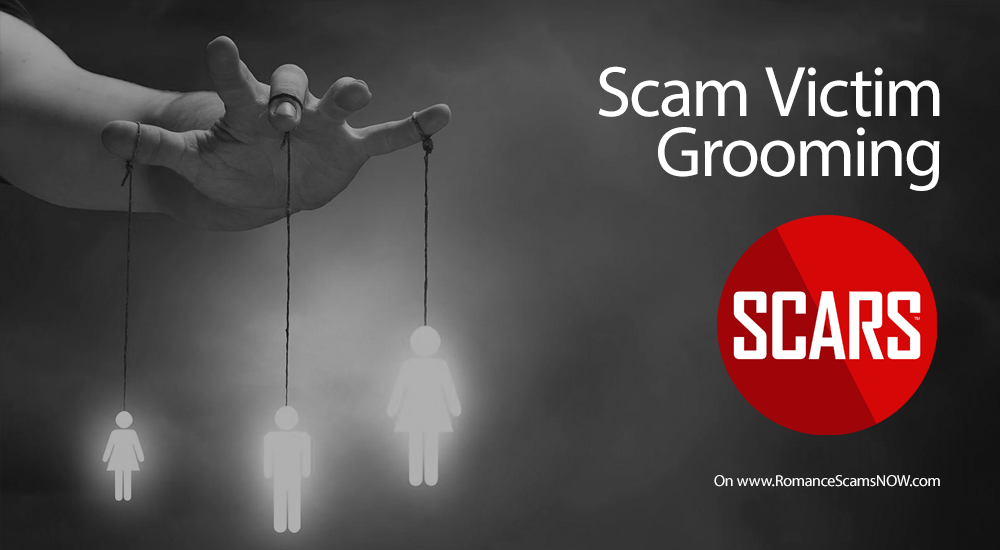After The Scam Comes Disaster – A SCARS Guide
The Hard Times That Come After A Scam
For scam victims understanding what to expect helps take away some of the anxiety that being a victim brings.
AFTER THE SCAM COMES THE DIFFICULTY
You all know what you felt after you discovered your scam. Heartache, despair, rage and anger, depression. The whole range of traumatic emotions that follow something like this. But few foresee the long-term consequences to their lives from giving away the amounts of money that some do.
Some victims give away huge sums of money, from thousands to over a million. In our website and social media pages, you will find articles that explain why it happened and the psychological impact of it, but there are also – in some cases severe – financial and lifestyle consequences as well.
We know that scams are both an emotional dependency that results in grief after it ends, as well as an addiction that results in withdrawal after it is over. There have been massive amounts written about the impact on people’s lives when they experience these things. But couple the grief, the withdrawal, with the large financial losses together and for many, it is a recipe for personal disaster.
Those That Get Off Easy
For some, the amounts they sent to scammers were relatively small from hundreds to a few thousand. They can absorb the loss with only the psychological damage. These are the ones that get off easy, though it may not feel that way to them. They will, however, recover financially relatively quickly.
Those That Scrape By
For some, the amount of money was serious. It threatened their future and maybe even stole it. But they still have employment or the ability to survive with the income they still have. Some will have to file bankruptcy to solve their financial crisis. Of perhaps family and friends chip in to help them get through. It may have been a close call, but they survived. Though they may never recover from the financial loss, they can at least keep going.
Those That Fail
The saddest are those that gave away everything and have neither the means to stay afloat or the circle of friends that can help. We have seen countless examples of victims who have lost everything, including homes and cars, and even the ability to put food on the table. Many have literally become homeless. These are the fallen, that have been so hard hit by their loss of money and the emotional impact that there is no coming back.
The worst part of this is that it is not always immediate. For some, it can take years of spiraling down before they hit bottom, and usually by that time they have no resources left. They exhausted everything possible but it was never enough to put them back on track. This usually has more to do with the trauma they experienced and are living with every single day than the financial deficiencies. Either because of PTSD or depression or rage, they just can’t keep their lives together, hold a job, or ask for the help they need.
Coming Back From The Abyss
Regardless of how bad it is, there is always a path back. The problem is that not only are scams a monetary loss but also a debilitating psychological trauma that leaves many completely broken. The trauma they experience can be so severe and without the needed coping skills, they are simply unable to make the journey back. These are the ones that go over the edge.
Yet we have seen time and time again, individuals crawl back out of the abyss to stand on their own two feet again. Not with what they had before and not even who they used to be, but still strong and self-reliant. In most of the world there are some resources for people in need – be it family and friends or the government. But it takes a determination to survive to make it through. Many have that and some do not.
The First Steps To Survival
For almost everyone, the first step to survival is recognizing that this is going to be hard, harder than you can take on your own. Seeking help is the essential first step in becoming a survivor. But seeking help is not joining an amateur scam hater group on Facebook. It is taking stock of what you need, from psychological help to financial assistance and being honest with yourself about it.
It is important to take stock of yourself and determine what help you really need to survive your scam. Of course, this assumes that you have already accepted that you were scammed and that you are not living in denial. If you are in denial, nothing is going to help you until you can accept the truth of your situation.
Checklist Of Survival Considerations:
- Read our Three Steps For New Victims Guide
- Post Scam Cleanup – accepting the facts, reporting the crime, blocking the scammer, never communicating with them again – and never talking to strangers again
- Learning What Just Happened – this is about seeking credible and professional information about what happened to you – understanding of the event is critical in taking control again
- Recognizing The Financial Impact On Your Life – you have to assess how badly the loss of money is going to affect your life – the money will not be coming back, but there may be financial assistance available – go find out and get it if possible
- Understand The Gap – if you lost a significant amount the gap in what you had compared to your income or resources are going to change your life – honestly analyze what this will mean for you – you cannot afford to ignore this or you will not make it
- Getting Support – you are going to need support to make it through this – fist seek out a SCARS Approved Victims’ Assistance and Support Group so that you can have both emotional support and a community that can guide you through your life for the next couple of years (yes it will probably take that long to recover!)
- Focus On Your Ability To Stand Up And Control Yourself – focus on controlling your anger and depression – you may need professional counseling for this – do not be too proud to go for it
- Stay In Control Of Your Finances – you are going to have tough times and there may be many times when you will not have enough – in these time set aside your pride and ask for help – never lose sight of where you really are
- Make The Hardest Decisions – you may not be able to keep what you had – your home, your car, or more – this is where the hard decisions have to be made – whatever they are you have to do what you have to do – there is no looking back now
- Coping Strategies for Scam Victims – click here
At some point, if you keep these all in mind and make the right decisions you will get through this. As we said, you will not have what you had before and you will not be the same person, but you will survive.
If you do all this you will no longer be a victim you will become a survivor!
Welcome to the club! There are nearly 15 million other members who have been the victim of a romance scam.
You are not alone unless you choose to be!
TAGS: SCARS, After the Scam, Information About Scams, Anti-Scam, Scams, Scammers, Fraudsters, Cybercrime, Crybercriminals, Romance Scams, Scam Victims,
SCARS™ Team
Society of Citizens Against Relationship Scams Inc.
A Worldwide Crime Victims Assistance Nonprofit Organization
Visit: www.AgainstScams.org
Contact Us: Contact@AgainstScams.org
PLEASE SHARE OUR ARTICLES WITH YOUR FRIENDS & FAMILY
HELP OTHERS STAY SAFE ONLINE – YOUR KNOWLEDGE CAN MAKE THE DIFFERENCE!
The Latest SCARS Posts:
FIND MORE SCAM NEWS
«SCAMCRIME.COM»
JOIN US ON FACEBOOK
«CLICK HERE»
END
MORE INFORMATION
– – –
Tell us about your experiences with Romance Scammers in our
« Scams Discussion Forum on Facebook »
– – –
FAQ: How Do You Properly Report Scammers?
It is essential that law enforcement knows about scams & scammers, even though there is nothing (in most cases) that they can do.
Always report scams involving money lost or where you received money to:
- Local Police – ask them to take an “informational” police report – say you need it for your insurance
- U.S. State Police (if you live in the U.S.) – they will take the matter more seriously and provide you with more help than local police
- Your National Police or FBI « www.IC3.gov »
- The SCARS|CDN™ Cybercriminal Data Network – Worldwide Reporting Network on « www.Anyscam.com »
This helps your government understand the problem, and allows law enforcement to add scammers on watch lists worldwide.
– – –
To learn more about SCARS visit « www.AgainstScams.org »
Please be sure to report all scammers
on « www.Anyscam.com »
Disclaimer:
SCARS IS A DIGITAL PUBLISHER AND DOES NOT OFFER HEALTH OR MEDICAL ADVICE, LEGAL ADVICE, FINANCIAL ADVICE, OR SERVICES THAT SCARS IS NOT LICENSED OR REGISTERED TO PERFORM.
IF YOU’RE FACING A MEDICAL EMERGENCY, CALL YOUR LOCAL EMERGENCY SERVICES IMMEDIATELY, OR VISIT THE NEAREST EMERGENCY ROOM OR URGENT CARE CENTER. YOU SHOULD CONSULT YOUR HEALTHCARE PROVIDER BEFORE FOLLOWING ANY MEDICALLY RELATED INFORMATION PRESENTED ON OUR PAGES.
ALWAYS CONSULT A LICENSED ATTORNEY FOR ANY ADVICE REGARDING LEGAL MATTERS.
A LICENSED FINANCIAL OR TAX PROFESSIONAL SHOULD BE CONSULTED BEFORE ACTING ON ANY INFORMATION RELATING TO YOUR PERSONAL FINANCES OR TAX RELATED ISSUES AND INFORMATION.
This content and other material contained on the website, apps, newsletter, and products (“Content”), is general in nature and for informational purposes only and does not constitute medical, legal, or financial advice; the Content is not intended to be a substitute for licensed or regulated professional advice. Always consult your doctor or other qualified healthcare provider, lawyer, financial, or tax professional with any questions you may have regarding the educational information contained herein. SCARS makes no guarantees about the efficacy of information described on or in SCARS’ Content. The information contained is subject to change and is not intended to cover all possible situations or effects. SCARS does not recommend or endorse any specific professional or care provider, product, service, or other information that may be mentioned in SCARS’ websites, apps, and Content unless explicitly identified as such.
The disclaimers herein are provided on this page for ease of reference. These disclaimers supplement and are a part of SCARS’ website’s Terms of Use.
Legal Notices:
All original content is Copyright © 1991 – 2020 Society of Citizens Against Relationship Scams Inc. (D.B.A SCARS) All Rights Reserved Worldwide & Webwide. Third-party copyrights acknowledge.
SCARS, SCARS|INTERNATIONAL, SCARS, SCARS|SUPPORT, SCARS, RSN, Romance Scams Now, SCARS|INTERNATION, SCARS|WORLDWIDE, SCARS|GLOBAL, SCARS, Society of Citizens Against Relationship Scams, Society of Citizens Against Romance Scams, SCARS|ANYSCAM, Project Anyscam, Anyscam, SCARS|GOFCH, GOFCH, SCARS|CHINA, SCARS|CDN, SCARS|UK, SCARS|LATINOAMERICA, SCARS|MEMBER, SCARS|VOLUNTEER, SCARS Cybercriminal Data Network, Cobalt Alert, Scam Victims Support Group, are all trademarks of Society of Citizens Against Relationship Scams Inc., All Rights Reserved Worldwide
Contact the law firm for the Society of Citizens Against Relationship Scams Incorporated by email at legal@AgainstScams.org











This was very informative.
howdo Ireport acam ftom africa .
From what country?